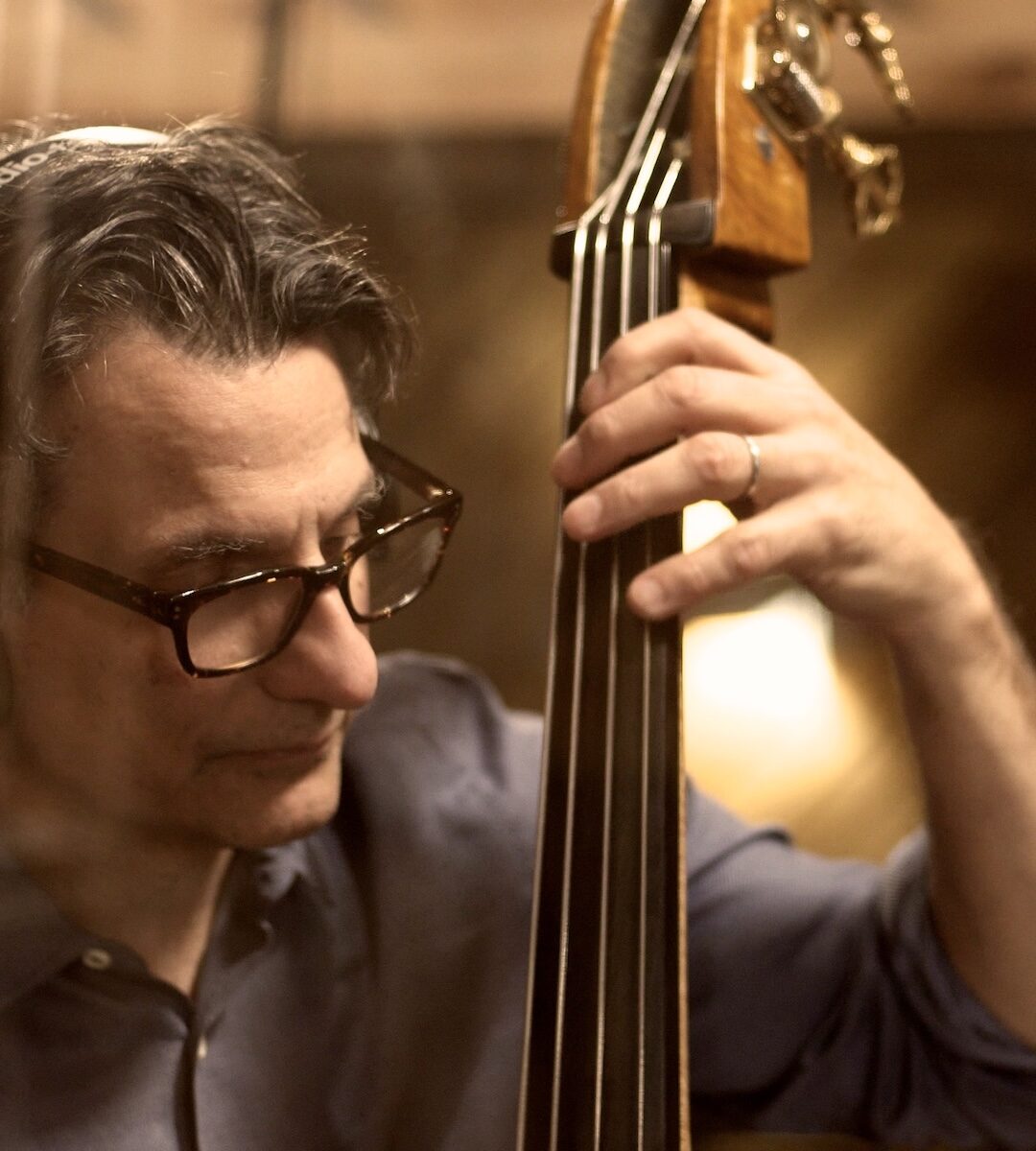The notable bassist, John Patitucci ( “JP”), plays on three of Finbury’s albums which feature great singers: “Quatro” featuring Magos Hererra, “Sorte!” featuring Thalma de Freitas & “Vã Revelação” featuring Bruna Black.
When Quatro came together in New York in 2019, JP joined Magos Herrera, Chano Domínguez, Antonio Sánchez, and co-producer Emilio D. Miler to bring Finbury’s compositions to life. The result moves fluidly between vocal and instrumental pieces, all threaded by a subtle architecture in the bass. Patitucci doesn’t merely mark the changes—he shapes them. In “Salón Jardín”, his solo emerges with an almost guitar-like clarity, carrying the melody in a way that feels both delicate and deliberate. On “Comenzar”, the remarkable opening acoustic bass cadenza brings the song to life before Magos begins to sing.
The same elevated instinct for balance and nuance is heard in JP’s beautiful playing on “Sorte!,” a 2020 Grammy nominee for Best Latin Jazz album, where he is joined by Vitor Gonçalves (piano & Rhodes), Chico Pinheiro (guitar), Daduka Da Fonseca (drums), and the great Airto and Rogerio Boccatto on percussion. Here, the Brazilian jazz palette—bossa nova, samba, and soft ballad textures—calls for a more traditional grounding. JP supports Thalma’s vocals with lines that are felt as much as heard, offering warmth & steadiness while finding room for elegant melodic turns. The title track rests on that steady foundation, allowing Thalma’s vocal and the ensemble’s interplay to rise above naturally. This same amazing ensemble returns to the studio in 2024 to support Bruna Black with mastery in “Vã Revelação.”
Part of Patitucci’s tremendous gift to music lies in the way he listens. You can hear it in the spaces he leaves, in the way his impeccable tone shifts to match the piano’s phrasing or to push against a rhythmic pattern from the drums. His work with Finbury’s songs and these wonderful singers is as much about ensemble conversation as it is about performance—listening closely, responding honestly, and giving the music and the singer exactly what she needs in each moment. Whether in the lyricism of a solo, the depth of a groove, or the quiet support under a delicate phrase, JP’s bass lines in Sorte!, Quatro and Vã Revelação show that elegance in Latin jazz is about knowing when to lead, when to follow, and how to make every note sound great and feel like it inevitably belongs exactly where and when it is played.

